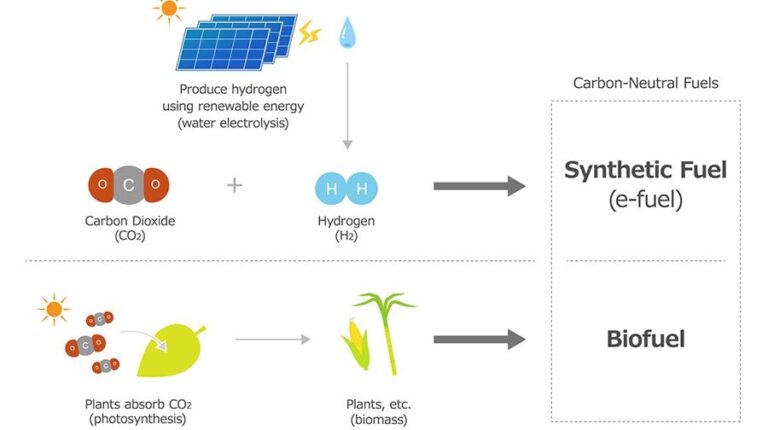Toyota, Idemitsu Kosan, Eneos and Mitsubishi Heavy Industries, have initiated a joint study aimed at introducing and spreading carbon-neutral fuels in the automobile sector.
This initiative is part of their broader goal to support the decarbonization of the automotive industry and to achieve a carbon-neutral society by around 2030. The four companies will leverage their respective strengths in supply, technology and demand to explore the feasibility and implementation of these fuels.
Carbon-neutral fuels are designed to minimize CO2 emissions throughout their entire lifecycle. They encompass synthetic fuels (e-fuels) created from hydrogen and CO2 and biofuels derived from plant materials that absorb CO2 via photosynthesis. Liquid carbon-neutral fuels, according to the companies, provide advantages in terms of energy storage and transportation, making them suitable for widespread use.
Study objectives
The joint study will focus on developing scenarios and roadmaps for the introduction of carbon-neutral fuels in Japan’s automotive market, including the necessary systems for market implementation, as well assessing the feasibility of production from the perspective of Japan’s energy security.
Each company has its own initiative as part of the collaboration.
Under its 2050 vision “Shaping Change”, Idemitsu Kosan says it is committed to a steady supply of diverse, eco-friendly energy, and aims to accelerate the introduction and spread of synthetic and biofuels through collaboration.
Eneos‘s long term vision involves striving to balance a stable energy supply with achieving carbon neutrality, and includes initiatives to reduce greenhouse gas emissions using hydrogen, renewable energy and by developing carbon-neutral fuels.
Toyota is pursuing carbon neutrality through a multi-faceted approach, including the reduction of CO2 emissions from internal combustion engine vehicles and the development of engines for EVs. The company has previously introduced flex-fuel vehicles in Brazil and says it will continue to focus on reducing emissions from both existing and new vehicles.
With its “Mission Net Zero” declaration for 2040, MHI is working to create a CO2 solutions ecosystem and a hydrogen solutions ecosystem. The company aims to contribute to carbon neutrality through its technologies, products, and innovations developed in collaboration with global partners.


